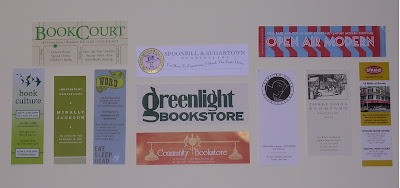 Hot Time in the Old Town: The Great Heat Wave of 1896 and the Making of Theodore Roosevelt by Edward P. Kohn
Hot Time in the Old Town: The Great Heat Wave of 1896 and the Making of Theodore Roosevelt by Edward P. KohnMy rating: 2 of 5 stars
This book is an unfortunate example of overambition. Hot Time in the Old Town, in addition to being an earworm for anyone who ever went to Girl Scout camp, attempts to tell three interlocking story: the rise of Theodore Roosevelt's political career, the collapse of William Jennings Bryan's 1896 presidential campaign, and the forgotten tale of a ten-day stretch in August of that year when the heat index in New York City remained well over 100 degrees, due to a disastrous combination of high temperatures and humidity--a heat wave that killed about 1,300 people. All three stories are interesting and deserving of attention--the book was never boring--but the connections between them are often tenuous, and the chapters jump from one to the other with little transition, giving the narrative a jerky quality.
Roosevelt was police commissioner at the time, and made some laudable decisions that helped the sweltering populace, especially the denizens of the oven-like Lower East Side tenements: police wagons were deputized as extra ambulances, and towards the end of the heat wave, officers handed out free ice to the poor. When Roosevelt learned of the rampant fraud going on (some families sent multiple children to pick up ice & resold it; wealthy people who could afford ice lined up with the indigent), he re-organized the distribution by giving individual beat cops vouchers to distribute to the families they knew from experience were the neediest. But other than these two initiatives, Roosevelt had little involvement in the events of the heat wave, and he spent most of the time at his house on Long Island, well out of the city.
Bryan, for his part, arrived in NYC at the height of the disaster to give a speech at Madison Square Garden--accepting his nomination to the Democratic ticket and bringing his Western populism to the hostile--but crucial--East Coast. I am not going to go into the debate then raging regarding "bimetallism"--tying the dollar to both silver AND gold--since although it was the cornerstone of Bryan's campaign, it is eye-glazingly dull at the best of times, and especially when one has been reading harrowing tales of tenement dwellers driven to sleep on their roofs falling off in the middle of the night and the epidemic of horse carcasses rotting in the streets. True, Bryan's speech went over like a lead balloon, badly enough that his campaign strategists cancelled the rest of his East Coast tour--but I just don't buy that it was all due to the heat.
So Hot Time in the Old Town was ultimately disappointing, in structure if not in content--I think that the heat wave itself would have made more a fascinating book without trying to tie it into the politics of the time. I also feel like no book should ever have both a prologue and an introduction--or, even worse, a "conclusion," an "epilogue," and a postscript. Seriously? Three endings? Come on.
However, the author did quote Roosevelt's 1891 book on the history of New York, which I am taking as my motto in tough times from now on: "[New York's] life is so intense and varied, and so full of manifold possibilities, that it has a special fascination for ambitious and high-spirited men of every kind, whether they wish to enjoy the fruits of past toil, or whether they have yet their fortunes to make, and feel confident that they can swim in troubled waters--for weaklings have small chance of forging to the front against the turbulent tide of our city life. The truth is that every man worth his salt has open to him in New York a career of boundless usefulness and interest." A-men, Teddy!








